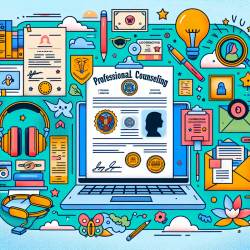Boost Your Professional Skills with Epistemic Health, Immunity, and Inoculation
As a practitioner in the field of online therapy services, staying ahead of the curve is essential. The research article "Epistemic Health, Epistemic Immunity, and Epistemic Inoculation" introduces three pivotal concepts that can significantly enhance your professional skills and improve your approach to therapy.
Understanding Epistemic Health
Epistemic health refers to how well an entity functions concerning various epistemic goods or ideals. It is influenced by factors such as possessing true beliefs and making reliable inferences. For practitioners, maintaining epistemic health involves continuous learning and adapting to new information, ensuring that the therapy provided is grounded in the most current and accurate knowledge.
Strengthening Epistemic Immunity
Epistemic immunity is the robustness with which an entity resists certain epistemic activities, such as questioning ideas or believing unreliable sources. As a practitioner, enhancing your epistemic immunity means developing a critical eye for information, ensuring that the sources you trust are credible, and fostering a culture of inquiry and skepticism where appropriate.
The Role of Epistemic Inoculation
Epistemic inoculation occurs when social, political, or cultural processes make an entity immune to engaging in certain epistemic activities. In practice, this means being aware of the social and cultural factors that might influence your beliefs and those of your clients. By understanding these influences, you can better navigate and mitigate their impact, ensuring that your therapeutic interventions are not swayed by unfounded societal biases.
Applying These Concepts in Practice
- Stay Informed: Regularly attend conferences, webinars, and read publications to keep your knowledge base current.
- Critical Evaluation: Develop a habit of critically evaluating new information and sources, distinguishing between credible and unreliable data.
- Foster Open Dialogue: Encourage open discussions with peers and clients about the influences of societal and cultural factors on beliefs and decisions.
By integrating these concepts into your professional practice, you can enhance your skills, provide more effective therapy, and contribute to a healthier epistemic environment for your clients.
To read the original research paper, please follow this link: Epistemic Health, Epistemic Immunity and Epistemic Inoculation.










